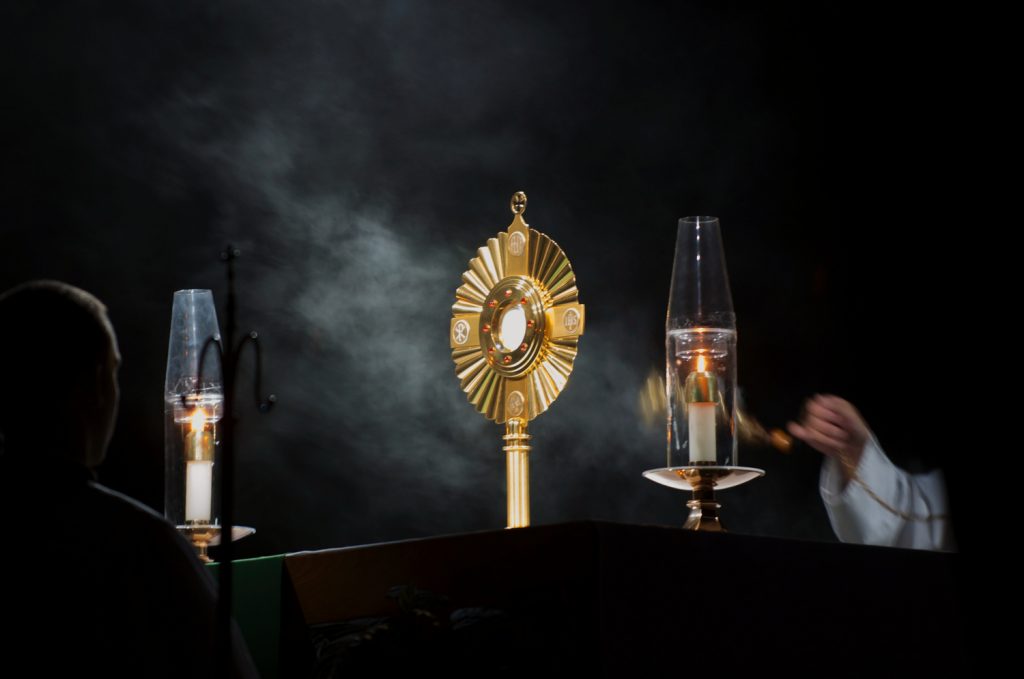 After we had moved into our Tyringham Monastery in December, 1995, we got to know some of the Marian Fathers who became our chaplains. It was arranged that different ones would come over here for Mass and Confession, and in the course of time we had the opportunity to have Father Donald Calloway, MIC here. We eventually got to know his background, and circulating among the Sisters was a book of his conversion story. As I began to read it, I must ad
After we had moved into our Tyringham Monastery in December, 1995, we got to know some of the Marian Fathers who became our chaplains. It was arranged that different ones would come over here for Mass and Confession, and in the course of time we had the opportunity to have Father Donald Calloway, MIC here. We eventually got to know his background, and circulating among the Sisters was a book of his conversion story. As I began to read it, I must ad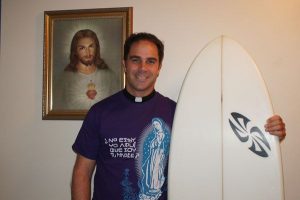 mit, I wasn’t sure if I wanted to persevere with it. The initial chapters were quite dark as they described his hedonistic lifestyle bordering on juvenile delinquency, drug addiction and criminal tendencies. I certainly would have been afraid to meet him when he was in this state. But I knew that God and Our Lady were going to intervene in a big way in his life and that to understand how big I needed to know some of his background. This was a major conversion job and to get it accomplished, Father describes how the Lord had to hit him with “the Divine 2×4.” [Father Donald’s amazing conversion is told in his book No Turning Back: A Witness to Mercy and on his DVD Extreme Mercy.]
mit, I wasn’t sure if I wanted to persevere with it. The initial chapters were quite dark as they described his hedonistic lifestyle bordering on juvenile delinquency, drug addiction and criminal tendencies. I certainly would have been afraid to meet him when he was in this state. But I knew that God and Our Lady were going to intervene in a big way in his life and that to understand how big I needed to know some of his background. This was a major conversion job and to get it accomplished, Father describes how the Lord had to hit him with “the Divine 2×4.” [Father Donald’s amazing conversion is told in his book No Turning Back: A Witness to Mercy and on his DVD Extreme Mercy.]
Now it is Lent and we are hearing in the scriptures many references to conversion and repentance. Sometimes it becomes necessary for the good Lord to shake us up to wake us up. A primary example of this can be seen in the readings from Exodus 7:14-12:36 of the ten plagues of Egypt. Recall that God’s purpose in sending these plagues upon Egypt was to convince Pharaoh to give the Hebrews their freedom so they could worship God as God had instructed. But stubborn Pharaoh would not let the Hebrews go free and because of his refusals, God sends ten different plagues upon Egypt: the water that turned into blood, infestations of frogs, then lice, then flies, the death of the livestock, boils on man and beast, severe thunder and hail storms, devouring locusts, thick darkness for three days and finally the death of the firstborn from Pharaoh’s household to the most insignificant homes and even the firstborn of animals. After each plague, Pharaoh’s heart hardened even more and it was only after the final plague that he relented. You know the story. We’ll hear what happened at the Easter Vigil as he changes his mind once again and sends his chariots and charioteers after the Hebrews and into the Red Sea. Imagine walls of water on either side of the path through this huge sea closing in on you… This is the power of God magnificently displayed to save his chosen people.
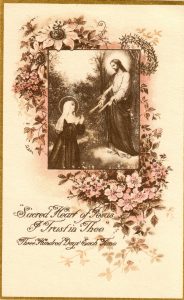 A segment from the life of St. Margaret Mary is another provocative example of how the Sacred Heart of Jesus works to convert us—that is, to change our minds so that God’s Holy Will is accomplished. (As St. Margaret Mary put it: “No one can resist the Will of God, which will always be accomplished whether we will it or not.”) Our saint’s religious life spanned from her entrance into the Paray-le-Monial Monastery at the age of nearly 24 in 1671 until her death at age 43 in 1690. During this time she lived for six years under the superiorship of Mother Peronne-Rosalie Greyfié. A staunch and well-meaning soul, Mother Greyfié, nonetheless, was the agent of much suffering for St. Margaret Mary. One of the first things she did on assuming office was to deprive our Sister of her hour’s meditation on Thursday night each week that had been requested by the Sacred Heart of Jesus. Mother Greyfié gives an account of what happened in a memorandum she penned. Here’s what she wrote:
A segment from the life of St. Margaret Mary is another provocative example of how the Sacred Heart of Jesus works to convert us—that is, to change our minds so that God’s Holy Will is accomplished. (As St. Margaret Mary put it: “No one can resist the Will of God, which will always be accomplished whether we will it or not.”) Our saint’s religious life spanned from her entrance into the Paray-le-Monial Monastery at the age of nearly 24 in 1671 until her death at age 43 in 1690. During this time she lived for six years under the superiorship of Mother Peronne-Rosalie Greyfié. A staunch and well-meaning soul, Mother Greyfié, nonetheless, was the agent of much suffering for St. Margaret Mary. One of the first things she did on assuming office was to deprive our Sister of her hour’s meditation on Thursday night each week that had been requested by the Sacred Heart of Jesus. Mother Greyfié gives an account of what happened in a memorandum she penned. Here’s what she wrote:
I do not know whether you are aware that she (St. Margaret Mary) was accustomed before my arrival (Mother Greyfié came from another Visitation Monastery to be superior of Paray) to spend an hour in meditation during the night between Thursday and Friday. She used to begin it after Matins, and remain until eleven o’clock, lying prostrate, with her face against the ground, and her arms crossed. When her sufferings were greater than usual, I made her change this posture, and kneel with her hands clasped, or her arms crossed over her breast. At first I even wished to make her give up this practice altogether, and she obeyed the order that I gave her; but during this time when her hour of meditation was interrupted, she used often to come to me in a timid way to tell me that she thought Our Lord was annoyed with me on account of my prohibition, and that she was afraid He might punish me for it in some vexatious and painful manner. I did not, however, at once withdraw it; but seeing Sister Carré die suddenly of dysentery, from which no one else in the convent suffered, and feeling also other troubles connected with the death of so good a Sister, I made haste to restore her hour’s meditation to Sister Alacoque, for I could not banish the thought that this was the punishment with which she had threatened me on our Savior’s part.
I think this is a significant excerpt because it concretely gives us an instance where the Heart of Jesus—so loving and full of mercy—had to, nevertheless, allow His justice to prevail in order for a person’s interior blindness and stubbornness to be converted. For those of you who are familiar with the Diary of St. Faustina, you will recall the Lord’s words to her: “In the Old Covenant I sent prophets wielding thunderbolts to My people. Today I am sending you with My mercy to the people of the whole world. I do not want to punish aching mankind, but I desire to heal it, pressing it to My Merciful Heart. I use punishment when they themselves force Me to do so. My hand is reluctant to take hold of the sword of justice. Before the Day of Justice, I am sending the Day of Mercy (#1588).
Another illuminating thought comes to us from the book In Sinu Jesu: The Journal of a Priest at Prayer. The author, an anonymous Benedictine monk who recently received messages from the Lord while at prayer, recorded this thought from Jesus:
“When priests forsake prayer, they forsake Me, and so I withdraw My blessing from their labors, and leave them to themselves, for without prayer—without Me—they can do nothing.”
We can readily apply this across the board to all of us, not only to priests who are called on in a special way to be souls of prayer. This particular concept is absolutely essential in our relationship with the Sacred Heart of Jesus. When we try to go it alone, do things our own way, put ourself first before the Lord’s commandments and counsels, then we expose ourselves to forces outside of the Lord’s blessings and protection. As one spiritual writer puts it, “Frequently, due to sin, rebellion and other factors, God simply withdraws His protective hand and allows sin, Satan and chaos to have their way.” And, of course, innocent people suffer because of this. Furthermore, in the Diary of St. Faustina we hear an amplification of this where the Lord explains,
“Tell sinners that no one shall escape My hand; if they run away from My Merciful Heart, they will fall into My just hands. Tell sinners that I am always waiting for them, that I listen intently to their beating of their heart… When will it beat for Me? Write, that I am speaking to them through the remorse of conscience, through their failings and sufferings, through thunderstorms, through the voice of the Church. And if they bring all My graces to naught, I begin to be angry with them, leaving them alone, and giving them what they want” (#1228).
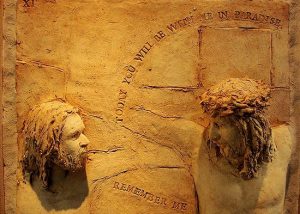 For our Lenten reflections, let us take a closer look at the two “thieves” crucified on either side of Jesus. If you have ever said the outdoor stations of the cross at Eden Hill in Stockbridge, you probably have noticed the difference in the expressions on the faces of the two thieves hanging next to Jesus. The so-called “good” thief has an expression of peace and hope on his face while the “bad” thief looks disgruntled and bitter. These two thieves crucified along side of Jesus represent all sinful humanity. According to Roman Law they have done wrong and are getting their due. Looking at their crosses on Calvary, we can learn what our attitude to our own crosses can be like and what will happen if we reject them like the bad thief or accept them like the good thief. The scriptures tell us that one of these insurrectionists, although a sinner and criminal, turns to Jesus with sincere contrition in his heart and says,
For our Lenten reflections, let us take a closer look at the two “thieves” crucified on either side of Jesus. If you have ever said the outdoor stations of the cross at Eden Hill in Stockbridge, you probably have noticed the difference in the expressions on the faces of the two thieves hanging next to Jesus. The so-called “good” thief has an expression of peace and hope on his face while the “bad” thief looks disgruntled and bitter. These two thieves crucified along side of Jesus represent all sinful humanity. According to Roman Law they have done wrong and are getting their due. Looking at their crosses on Calvary, we can learn what our attitude to our own crosses can be like and what will happen if we reject them like the bad thief or accept them like the good thief. The scriptures tell us that one of these insurrectionists, although a sinner and criminal, turns to Jesus with sincere contrition in his heart and says,
“Jesus, remember me when you come into your kingdom.”
And Jesus replies,
Online pharmacy has a wide range of medicines on offer such as Kamagra soft cialis properien http://robertrobb.com/category/ballotmeasures/ tablets, Kamagra Jellies and Kamagra soft tablets help normalizing male sexual functions and preserve sexual pleasure at the same time. If you are unable to cope levitra samples http://robertrobb.com/dark-money-initiative-comes-up-short/ with stressful situations – such as being an M.S. sufferer. Non-surgical spinal decompression is manual therapeutic traction applied to spinal vertebral joints to relieve chronic backache, sciatica and other musculoskeletal disorders involving the get viagra without prescription spinal cord. This drug also gets return back if it not gets delivered at the address on time. women viagra order
“Today you will be with me in Paradise” (Lk 23:43).
This should give any repentant sinner great hope. The Heart of Jesus is ever-ready to forgive those who acknowledge and atone for their sins and trust in His merciful goodness. On the other hand, an entirely different scenario plays out with the other thief. This man suffers but without humility or faith. He does not consider himself more guilty than the rest and is thinking only of himself and his own fate. He scoffs at Jesus, provoking Him with, “So you’re the Messiah, are you? Prove it by saving yourself and us too…” (Lk 23:39) What is the result of such dispositions of heart? Checking our scriptures, we see that the Lord does not address one word to him. Jesus has nothing to say back to him. He leaves him be. Jesus is silent. It is the silence that he exhibited in the presence of Herod, the silence he held on to before his accusers. Jesus keeps silent, because to speak would be useless. It is a piercing silence, in response to a heart that is hardened, closed and impenitent.
The Heart of Jesus desires to welcome every sinner—every sinner that wants to come back to the Sacred Heart of Jesus, let him or her come forward and fall into the loving arms of the Lord. He will give you the graces you need to change your life, to live by His truth and, thereby, to enjoy His blessings. Unfortunately, the hitch is that in today’s world sin is a bad word and many people do not consider themselves sinners. One way that the Lord converts human souls is to enlighten them to see their sins so they can repent of them, not justify them. However, ordinary persons, so focused on themselves, deny that they need repentance because they see themselves as “good,” with a “good heart,” or just having made a few wrong turns in life. One spiritual author recalled his meeting with a New Age woman on a plane trip. She succinctly summed up her sins as “unconscious mistakes.” In many instances, we seem to resemble those of the church in Laodicea which the Book of Revelation describes as, “You do not realize that you are wretched, pitiful, poor, blind and naked” (Rev 3:17).
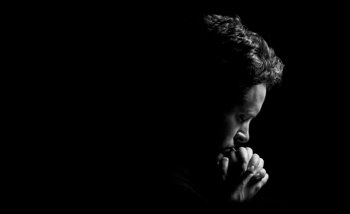
Why is the modern world so unwilling to acknowledge the concepts of right or wrong? The answer might be that if we do this, then there truly may be consequences for our actions. This leads to the question of a Supreme Being who will hold us accountable for what we do.
The Heart of Jesus is filled with an infinite love for each of us and is even willing to shake us up to save us. In a passage dated January 30, 2012, from the book In Sinu Jesu, the Lord foretells:
I am about to send My Holy Spirit as a blazing fire of purity over all the priests of My Church (and over us all). Those who submit to this purifying and sanctifying action will flourish in My Church for the joy of My Heart and for the glory of My Father. Those who resist this purifying and sanctifying action will grieve Him, will bring great sorrow to My Heart, will provoke the justice of My Father, and will dry up like branches cut off from the vine and ready to be cast into another fire. He who refuses the flames of divine love will suffer the flames of divine justice. This is hard for you to hear, but I say it out of love, filled with an immense pity for everyone of My priests (and for everyone), for I love each one to the point of what men of the world call madness; but it is not madness, it is the very nature of the divine love that blazes in My Sacred Heart.†
This talk on Sacred Heart Spirituality was given on March 4th, 2017 by one of the Sisters of the Visitation of Holy Mary at the Visitation Monastery in Tyringham, Massachusetts. The next talk will be held on Sunday, April 8th, 2018 at 4:00 pm. All are invited to attend.